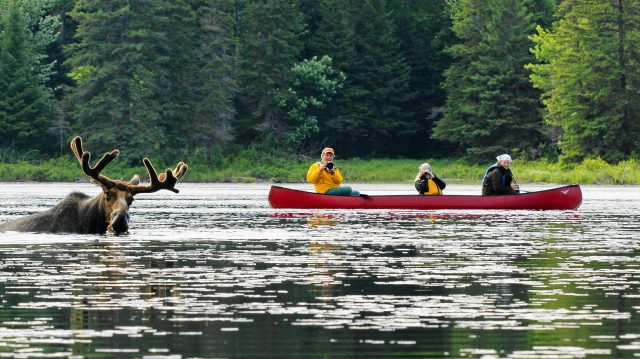Learn the Lingo: 10 Slang Terms in Canada
Posted April 11, 2019 in Inside Canada
Canada’s top 10 slang terms
It’s day three of your trip to Canada and you’ve already been asked if you packed your toque (pronounced toohk] and whether or not you have any loonies in your pocket. It’s enough to make a first-timer’s head spin, so perhaps you need to sit down and relax on the nearest chesterfield (whatever that might be).
Canada has two official languages – English and French – but perhaps a third should be designated as well: Canadian slang, that curious tangle of culturally specific idioms you need to be a resident to fully understand. But don’t worry: this story will help you navigate the nation’s thorny linguistic jungle as if you were born here.
Read on for our line-up of 10 top Canadianisms – and be sure to memorize it for your next visit. And in case you’re wondering: chesterfields are what some Canadians (particularly the older generations) call sofas. But you already knew that, eh?!

Loonie
There’s a good reason Canadians call the country’s golden-hued $1 coin a loonie – and it has nothing to do with being crazy about money. You may have noticed that this particular coin often has a handsome feathered critter depicted on one side. It’s actually a loon bird – one of Canada’s most iconic feathered citizens – hence the coin’s quirky nickname. Not surprisingly, when the bi-coloured $2 coin arrived on the scene a few years later, it was quickly dubbed the toonie.
Toque
If you’re a winter visitor to Canada, you may have packed one of these in your suitcase without even knowing it. The toque is a warm, typically knitted hat, sometimes known as a beanie in the US or a woolly hat in the UK. The unusual-sounding word traces its linguistic roots to old French, but there’s still some debate over exactly how it should be spelled, with both ‘tuque’ and ‘touque’ having their own woolly-brained adherents.

Bunny hug
If you thought toque was a weird term for a clothing item, behold the bunny hug. No one is certain how this garment – known by everyone else on the planet as a hoodie – came by this wacky nomenclature in the province of Saskatchewan only. Did a one-time overabundance of rabbits mean that pelts were used to make tops that later became sweatshirts? Is it related to a risqué early 20th-century dance also known as the bunny hug? Either way, the term is ubiquitous here – proudly used by all the locals.
Dep
Mom and pop corner stores were once two-a-penny in communities of all sizes across Canada. And while there are still thousands of these open-all-hours joints here – where else are you going to find batteries AND a gallon of milk in the middle of nowhere?—they are arguably most ubiquitous in Quebec, where they still seem to thrive. Not that the locals here call them corner stores. If you’re in la belle province and you suddenly need some nighttime smokes or a bag of ketchup-flavoured chips, ask for the nearest dep, a shortened version of the French word dépanneur.
Two four
Among the many booze-related slang terms in Canada, this phrase – particularly popular in Ontario – refers to a package of 24 bottles of beer. If you’re thirsty for more, a mickey is a small (usually 375ml) flask-shaped bottle of liquor, while the lesser-used twenty sixer is a larger (750ml) bottle. And if you’re really in the mood to party, a Texas mickey is a giant three-litre bottle, best shared with more than a few friends.
Timmies
As Canadian as a toque-wearing loon perched on a chesterfield, Timmies is the affectionate term for the country’s seemingly ubiquitous Tim Hortons doughnut chain. Glossing over the fact that this beloved ‘Canadian company’ isn’t Canadian-owned anymore, there are some additional terms you might find useful if you nip in for a treat or three: double-double is a coffee order made with double cream and double sugar, while Timbits are the spherical doughnut holes sold alongside the main treats.

Canucks
The non-formal but generally affectionate term for someone from Canada, some locals find the word Canuck mildly offensive – although perhaps they’re just not fans of the Vancouver Canucks, that particular city’s NHL hockey team. The word canucklehead is sometimes deployed to describe this team’s die-hard fans or as an insult to a Canadian who’s not particularly intelligent. Interestingly, the well-known Atlantic Canada phrase chucklehead also refers to someone of limited brainpower.
Hoser
A signature Canadian insult translating as idiot or looser, hoser allegedly finds its origins in hockey: it’s said that the beaten players in hard-fought games were made to hose down the ice after the game. This origin story may not be entirely true, however, as an older use of the term has also been traced to logging industry slang.
Keener
Another word for a brownnoser or an overly solicitous individual, this is someone who is far too keen in the enthusiasm stakes. Perhaps it’s a canucklehead who continues to sing the praises of the Vancouver Canucks, even after they’ve lost 17 games in a row (again). Or maybe it’s a toque-wearing Timmies-lover who tries to convince you that their maple cream doughnuts are the finest culinary creation since banoffee pie. Either way, they’ve probably had access to far too many mickeys recently.
Sourdough
Back in the Yukon’s Gold Rush days, thousands of men flocked in to find their fortune. Those who stuck around the longest and survived the winters up here were known as sourdoughs, after the prospectors who kept their sourdough bread starters close to their bodies during the cold season. These days, any resident who makes it through at least one Yukon winter is honourifically known as a sourdough. There’s even a term for newcomer’s yet to make it through a cold season: they’re called cheechakos.
Did you come across some unexpected Canadian slang on your trip? Share your memories, photos and videos via Facebook or Twitter or tag us on Instagram.









